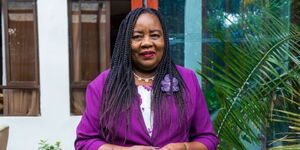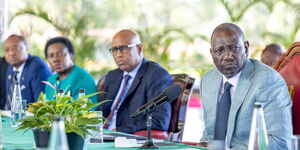The National Assembly has passed the Assisted Reproductive Technology (ART) Bill 2022, establishing a legal framework to regulate fertility treatments, surrogacy and reproductive health in Kenya.
According to Parliament, this legislation, which was sponsored and refined by Suba North MP Millie Odhiambo and Homa Bay Town MP Peter Kaluma, marks a significant advancement in the safeguarding of the rights of parents, surrogates and children, while also outlawing exploitative commercial surrogacy and gametes donation.
Under the new law, Kenya will only permit unpaid surrogacy to ensure the rights of children conceived through assisted reproduction are protected. Individuals engaging in commercial surrogacy will face a fine of up to Ksh10 million.
Those who violate the provisions, such as engaging in paid surrogacy, will face penalties for unethical practices.
These practices include human cloning, the sale of gametes (sperms and ova) or embryos and sex selection.
According to the Bill, offenders may face fines of up to Ksh10 million or imprisonment for up to 10 years.
Additionally, only Kenyans aged between 25–55 years will be allowed to seek surrogacy, with surrogate mothers required to be aged 25–45 years and have at least one child.
They will also be required to pass medical and psychological assessments before they can be permitted to be surrogates.
Further, to prevent commercial surrogacy, the law will require that everyone undergoing the procedure provide written consent. It also bans the use of reproductive material after a person’s death unless prior authorisation is given.
At the same time, the legislation limits gamete donations (reproductive cell donations - sperms and ova) to ten per person and mandates counselling for both intended parents and surrogate mothers to ensure they understand the process and their rights.
Meanwhile, surrogates will be entitled to three months’ leave after birth, while intended parents will also receive maternity and paternity leave.
Additionally, it will be an offense to abandon or exploit surrogate mothers or children.
The Bill also provides a regulatory framework for fertility treatments, including IVF, intrauterine insemination, gamete and embryo donation, and surrogacy, ensuring access for all Kenyans regardless of gender or marital status.
With infertility affecting one in six couples globally, the Act positions Kenya among a select group of African nations with clear assisted reproduction regulations, with the Bill now set to go to the Senate for concurrence before presentation to the President for assent.
During Tuesday’s third reading, Speaker Moses Wetang’ula commended MPs for concluding what he described as a protracted process, emphasising the law’s moral and cultural grounding.
He also praised both Millie and Kaluma for their collaboration in refining the Bill to suit Kenya’s context and prevent foreign exploitation.












